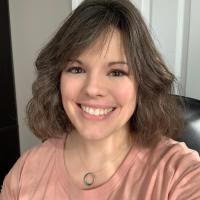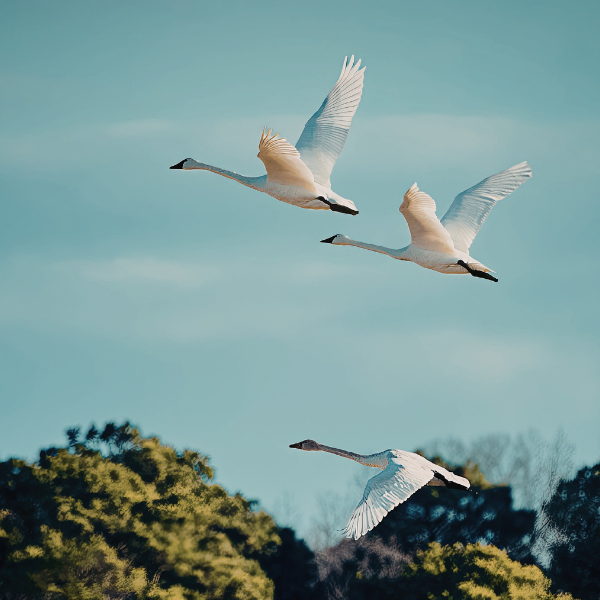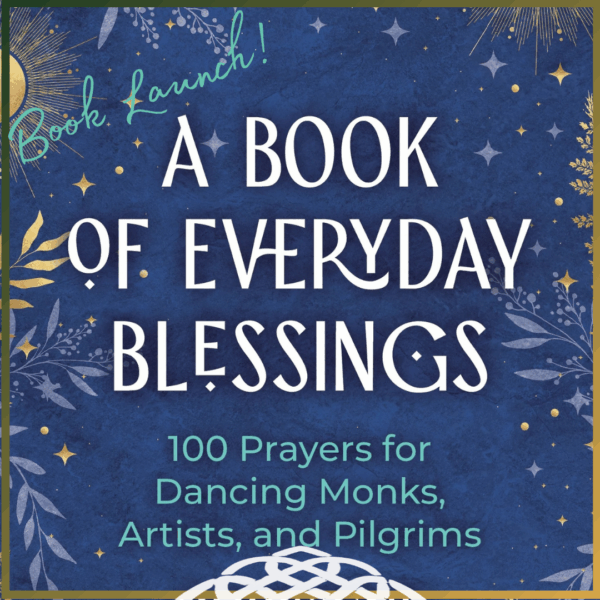I am delighted to share another beautiful submission to the Monk in the World guest post series from the community. Read on for Christina Lelache’s reflection on cyclical time in discernment.
A leafy green plant entered the sanctuary first, quickly followed by my congregant’s mirthful face as he told me to look away so I would be surprised later on in the worship service. It was my last Sunday as this congregation’s pastor, just a couple of weeks before my leave of absence from ministry would begin. And indeed, I was surprised when my staff-parish committee gifted me with this fiddle-leaf fig; clearly they had not heard about how quickly my brown thumb struck down the plants in my office. Nevertheless, they gifted me this beautiful plant, with blessings of growth as I entered into my leave. I was excited to receive such a lively gift, and yet worried I would also kill this poor plant, and what that would mean for me in my own liminal space of discernment.
I knew God was calling me into a new direction in my life, but the details of what that looked like were nebulous. I had some initial thoughts I began to explore as my leave started, but after the first few months, I quickly became frustrated with well-meaning people who would ask, “So what’s next?” I didn’t know, and in those early months it felt like the more I tried to pin down that question, the more it slipped out of reach.
As a child, I had dreams of working with orca whales. I pursed that dream single-mindedly until college, when I began to discern a call into ministry, which I assumed meant local church ministry. And so I began to pursue that with a single-minded focus, steadily moving through the ordination process of my denomination. I believed that time was a linear progression, moving from one point to the next and that when things were over, they were finished and would be no more. So as I focused on this call to ministry, I bid goodbye to my dream of working with animals. And when in the pandemic I came to realize that my time in local church was finished, it felt like another ending, another thing to leave behind.
Such an understanding of time, however, is not the wisdom of nature or of the Christian tradition. They teach that life is organic and cyclical, and although marked by change, it is endlessly regenerative and continuous. A plant may come to the end of its life cycle and die, but it holds within itself the seeds of what will come next.
As my discernment continued, I began to realize that these pieces of my story I thought over and done with were anything but finished. Discerning with archetypal wisdom through the Abbey’s mentoring group revealed that they were not isolated events, but strands that had been interweaving themselves below the surface. I began to see them as seeds — the dream to work with animals had its season, and left a seed, just as my time in the local church had its own season and seed. Those seeds are now, with space, time, and healing tears, germinating something new. I still don’t know what shape it will ultimately take, but exploring what comes back through prayer and rest is creating space for new life. And wisdom reminds me it won’t stay this way forever, that even this new direction will have its season of fullness while also containing the seed(s) of what wants to emerge next.
If I had held onto either focus, and only that, it may have only ever been that. But in recognizing the end of that particular life cycle, and seeing that each had their own seed of what is yet to come, something new can grow. Jesus teaches that wheat needs to fall to the earth and die in order to bear fruit. In our brief lifespans, such things feel like endings, and to mourn is an appropriate response. We often cross a threshold at such moments, unsure of what is next or what will become of us. Uncertainty seems to emphasize the end, because we do not yet see the newness.
And yet I don’t want to live forgetting that the end does contain the beginning. The reflection and tears shed may be the water and nourishment the seeds of what’s next need to begin unfurling. Thomas Merton wrote, “Every moment and every event of every man’s life on earth plants something in his soul. For just as the wind carries thousands of winged seeds, so each moment brings with it germs of spiritual vitality that come to rest imperceptibly in the minds and wills of men.” It’s a lovely way of saying that there is a seedbed within all of us, endlessly receiving anew while also holding the remains of what has ended, all growing and weaving together.
And so as I continue to navigate this space, I am choosing to embrace this seedbed, letting it teach me a new way of being. It’s a more organic rhythm that involves opening up space to discover myself and God anew. By following this rhythm of resting, noticing, receiving, and tending what returns and emerges, I may not fully know what’s next, but I know what it needs today to be nourished. And my fiddle-leaf fig, with similar attention and nourishment, is unfurling its own new leaves, reminding me to trust that the growth is always, always provided by God.

Christina Lelache is a mother, amateur photographer, budding naturalist, and pastor in the United Methodist Church. She is currently taking leave from active ministry to explore the connections between nature, spirituality, and personal formation, all while delighting in the natural wonders of New Jersey.


